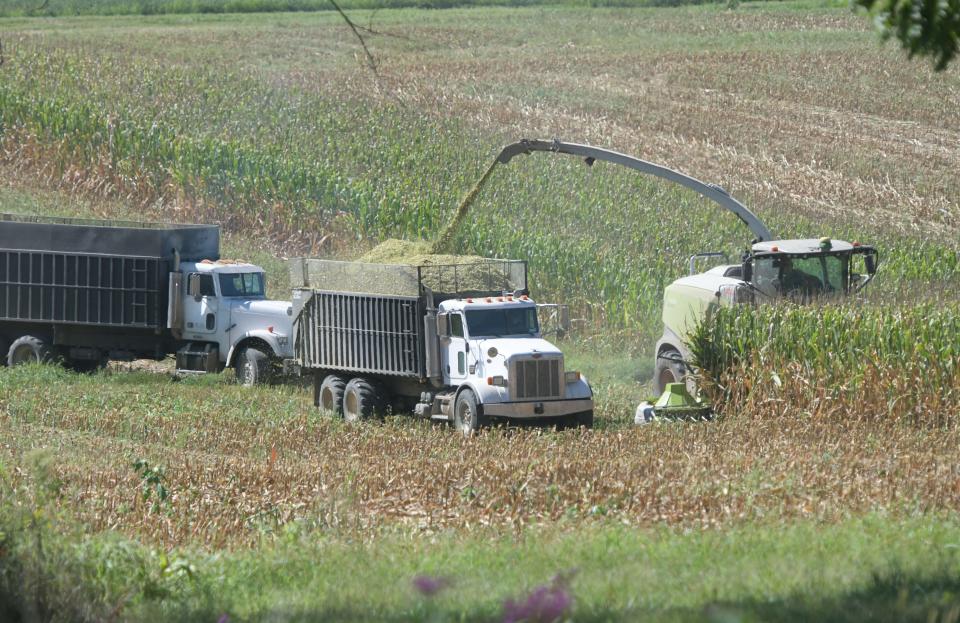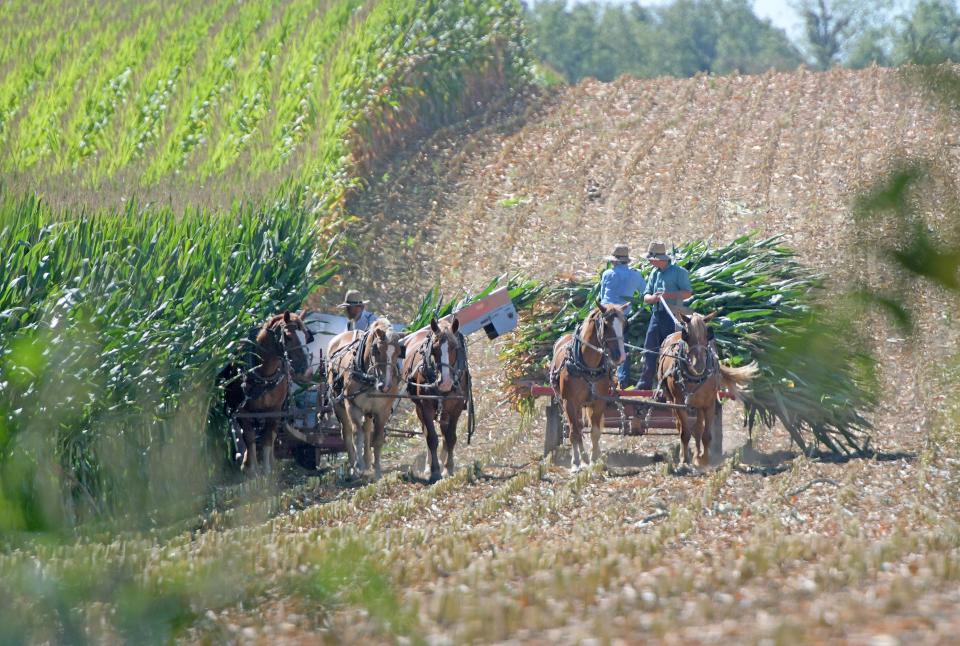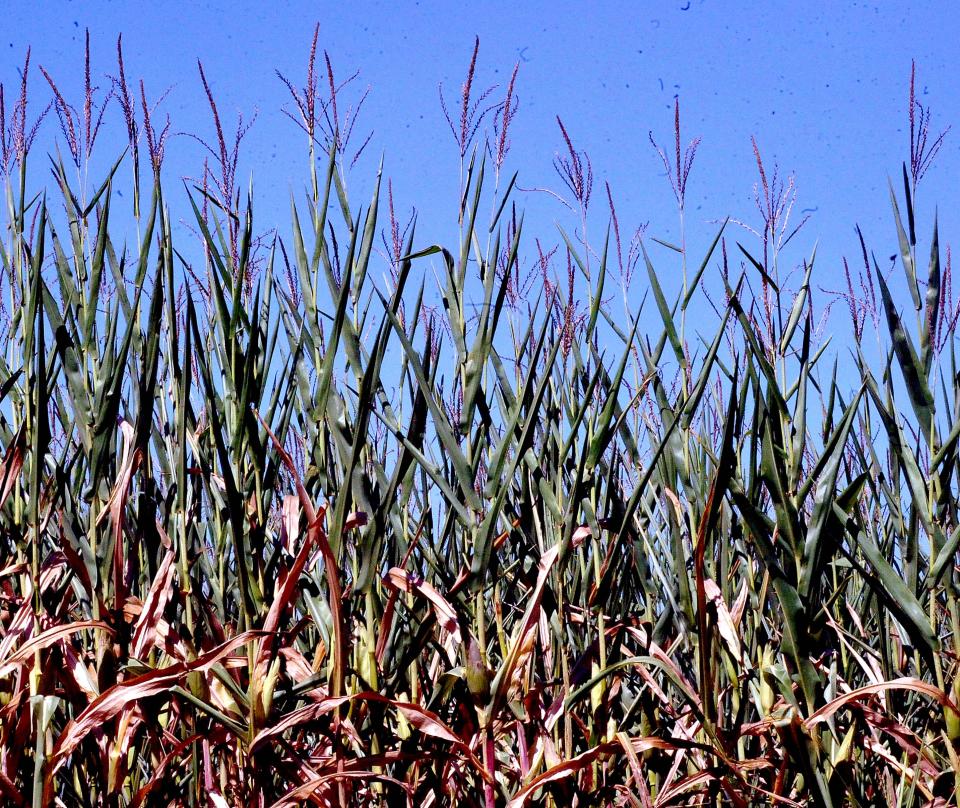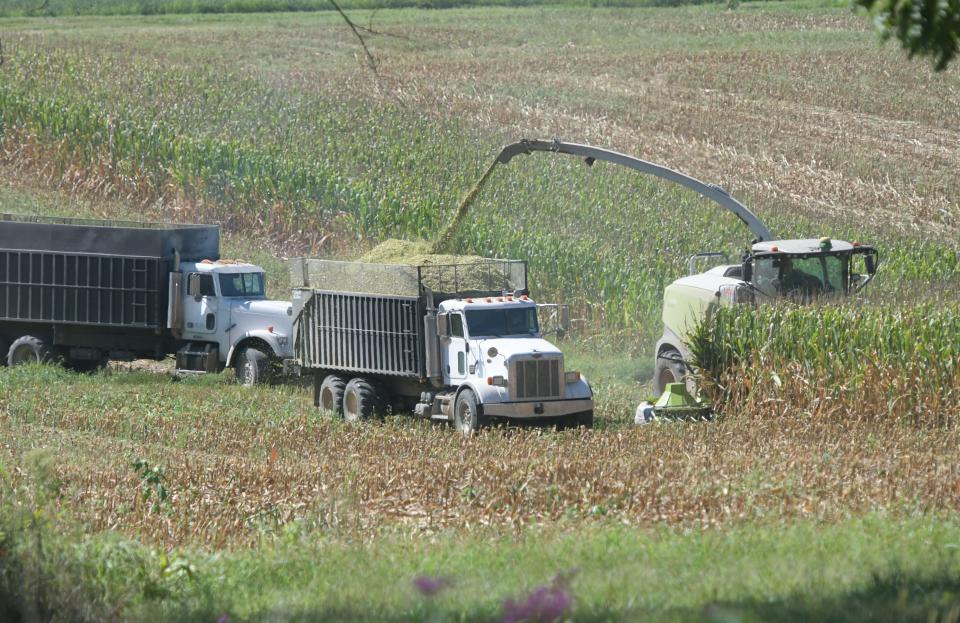Ohio’s prolonged drought is forcing premature harvest of withered crops and depleting hay and feed reserves that had been stored for winter.
“The effect will be long lasting,” said Ty Higgins, director of communications for the Ohio Farm Bureau.
Of the Buckeye State’s 88 counties, 87 were highlighted as parched when the U.S. Drought Monitor released its updated map Thursday.
With only modest rain forecast this weekend, the dry conditions will remain unquenched, according to Robert LaPlante, a meteorologist with the Cleveland office of the National Weather Service.
“It may stay about the same, would be my guess,” LaPlante said.
‘Such a struggle to grow things’
This year, abundant April showers misled May’s ploughers.
“From May 1 onward we had spells of some rain in different parts of the state, but overall it’s just been persistently below normal for rainfall,” LaPlante said. “It’s been such a struggle to grow things.”

LaPlante said he has experienced the drought firsthand.
“My vegetable garden doesn’t look good,” he said. “I’ve been giving it a relentless watering, but I’m just kind of worn out now.”
Farmers statewide feel the same frustration, only a thousand times harder.
“All the crops across Ohio could use some rain,” Higgins said. “It’s been a challenge.”
‘Two weeks ahead’: Early wheat harvest gives Ohio farmers a leg up on the rest of the year
16 Ohio counties touched by worst intensity on drought scale
The U.S. Drought Monitor breaks counties into one of five intensity rankings, from D0 Abnormally Dry to D4 Exceptional Drought.
The southeastern third of the state was listed Thursday as being under a D2 Severe Drought, or worse.
Of that area, portions of 16 counties are under a D4 Exceptional Drought, the most severe designation possible.
The Columbus Dispatch reports the USDA Farm Service Agency declared 22 Ohio counties natural disaster areas because of drought, allowing farmers to apply for emergency loans from the federal government.
The counties named in the USDA declaration are Athens, Belmont, Fairfield, Fayette, Gallia, Guernsey, Harrison, Highland, Hocking, Jackson, Jefferson, Madison, Monroe, Morgan, Muskingum, Noble, Perry, Pickaway, Pike, Ross, Vinton and Washington.
‘Risk of death by suicide’: Ohio farmers can now access mental-health resources 24/7
‘Springs have run dry’
The rolling hills of southeastern Ohio are prime land for livestock producers.
“Farmers cut hay this time of year and put it in the barn to feed to their cattle during the winter months,” Higgins said. “But it’s been so dry and the pastures are so fried that they have to use that hay now.”

The Farm Bureau has heard from hundreds of Ohio farmers who don’t know what they’re going to do this coming winter when they don’t have anything left to feed their animals.
A few can’t even keep watering troughs full now.
“Some farmers have to truck water in from off the farm,” Higgins said. “Springs have run dry.”
More: Foreign ownership of Ohio farmland has been on the rise. Here’s the data
‘More than disappointing for a lot of those farmers’
Crop farmers throughout the rest of the state are also feeling burned by the drought.
“Some of the corn that usually would wait until the end of September to be harvested is being harvested now,” Higgins said.
The lack of rainfall the past four months stressed crops to the point that they stopped getting bigger and focused on making sure their seed would be complete enough to germinate next spring.
“That crop gave up,” Higgins said. “It died off and dried down and those farmers are at a point now in the moisture content of the corn that they’re able to go out and harvest.”

An early harvest for corn and soybean producers is never a good sign, especially in today’s age of modern genetics where crops are designed to grow for as many days as possible.
“The yields aren’t nearly what they’re used to seeing,” Higgins said. “The bushel over the acre number is going to be more than disappointing for a lot of those farmers.”
‘We’ve been 50 to 75% of normal rainfall’
The only county not affected so far by the drought is Lake County in Northeast Ohio.
Rain gauges there collected 18 inches of rain between the first week of June and the first week of September, according to weather service reports.
“There was a band heavy rain in that area,” LaPlante recalled. “Those areas got 5 to 7 inches of rain one night.”
The southern half of the state barely got a third of that amount ― gauges in Jefferson County tallied 4.8 inches, Washington County 5.0 inches and in Pickaway County only 3.9 inches.
“We’ve had some intermittent rains this year,” LaPlante said. “But overall we’ve been 50 to 75% of normal rainfall over most of the state.”
A storm system forecast for Friday evening could blanket the state with light showers.
Northeast Ohio could get a full inch, but the southern and western halves of the state will likely only see a quarter-inch of rain in most areas.
“In the drought-stricken area, it’s probably going to be less than a quarter of an inch,” LaPlante said. “That’s not really going to do a whole lot when you’re down so much.”
ztuggle@gannett.com
419-564-3508
This article originally appeared on Mansfield News Journal: Ohio’s drought has become more severe with little rain in the forecast
EMEA Tribune is not involved in this news article, it is taken from our partners and or from the News Agencies. Copyright and Credit go to the News Agencies, email news@emeatribune.com Follow our WhatsApp verified Channel





